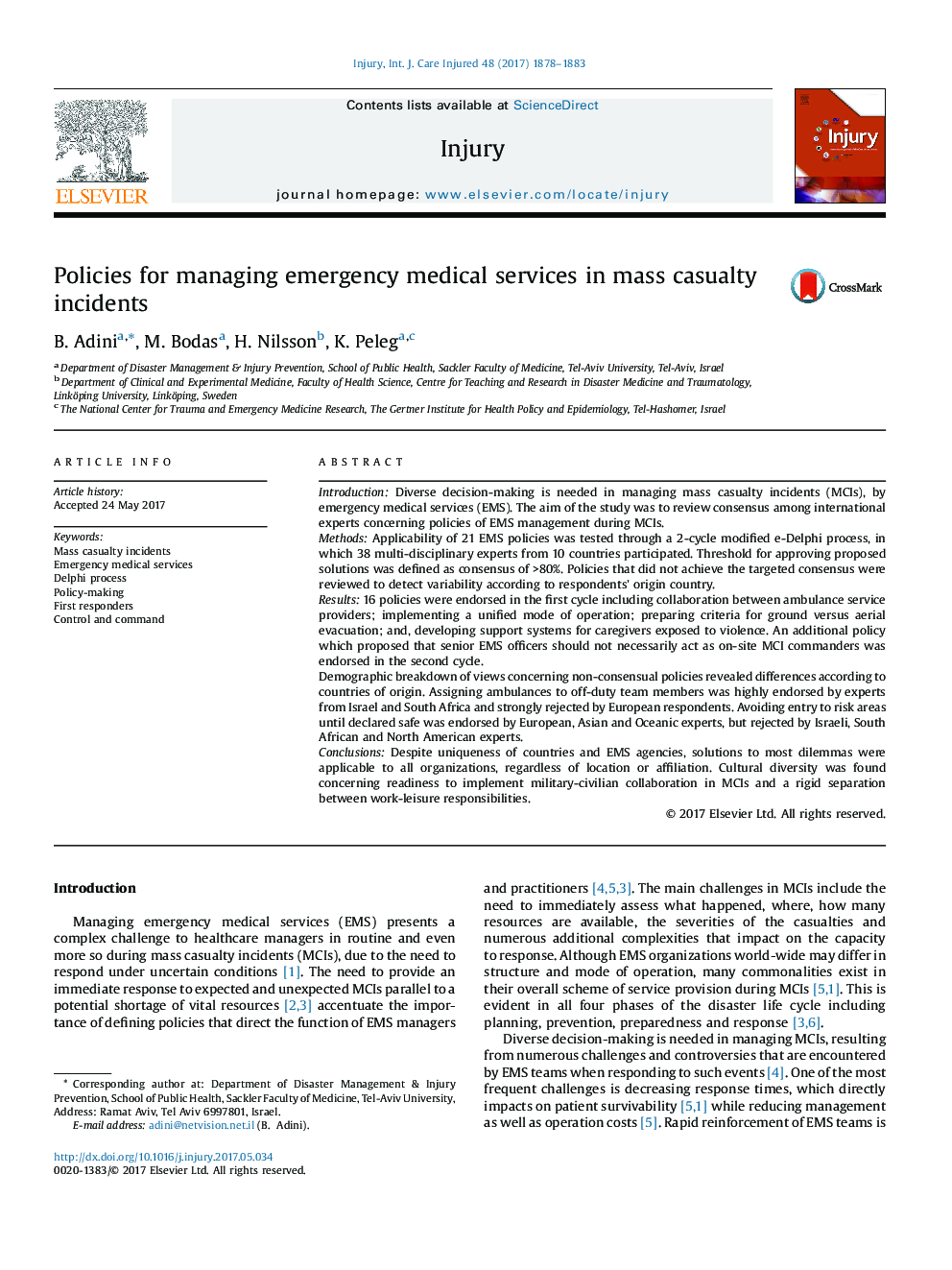| Article ID | Journal | Published Year | Pages | File Type |
|---|---|---|---|---|
| 5653041 | Injury | 2017 | 6 Pages |
IntroductionDiverse decision-making is needed in managing mass casualty incidents (MCIs), by emergency medical services (EMS). The aim of the study was to review consensus among international experts concerning policies of EMS management during MCIs.MethodsApplicability of 21 EMS policies was tested through a 2-cycle modified e-Delphi process, in which 38 multi-disciplinary experts from 10 countries participated. Threshold for approving proposed solutions was defined as consensus of >80%. Policies that did not achieve the targeted consensus were reviewed to detect variability according to respondents' origin country.Results16 policies were endorsed in the first cycle including collaboration between ambulance service providers; implementing a unified mode of operation; preparing criteria for ground versus aerial evacuation; and, developing support systems for caregivers exposed to violence. An additional policy which proposed that senior EMS officers should not necessarily act as on-site MCI commanders was endorsed in the second cycle.Demographic breakdown of views concerning non-consensual policies revealed differences according to countries of origin. Assigning ambulances to off-duty team members was highly endorsed by experts from Israel and South Africa and strongly rejected by European respondents. Avoiding entry to risk areas until declared safe was endorsed by European, Asian and Oceanic experts, but rejected by Israeli, South African and North American experts.ConclusionsDespite uniqueness of countries and EMS agencies, solutions to most dilemmas were applicable to all organizations, regardless of location or affiliation. Cultural diversity was found concerning readiness to implement military-civilian collaboration in MCIs and a rigid separation between work-leisure responsibilities.
